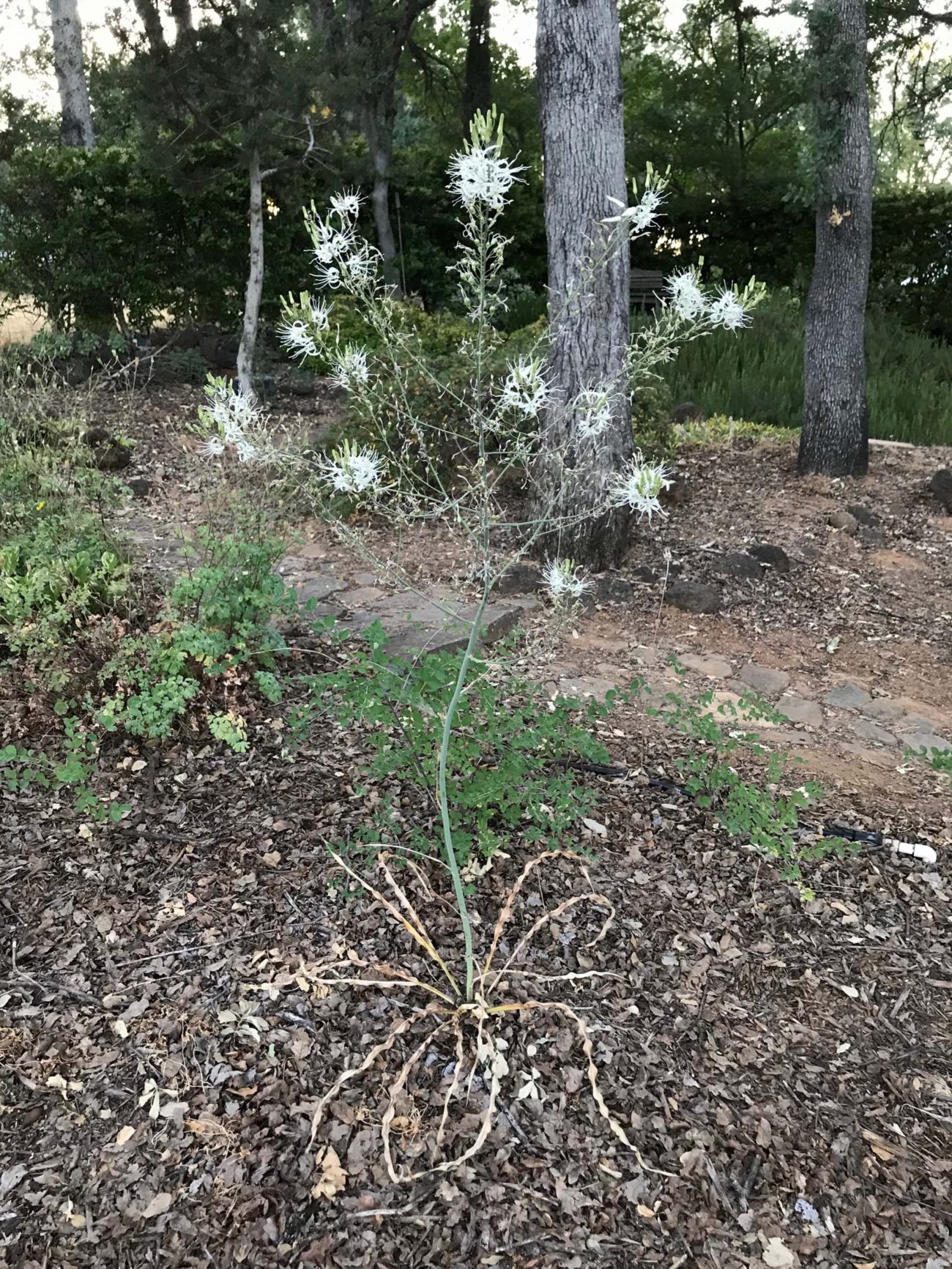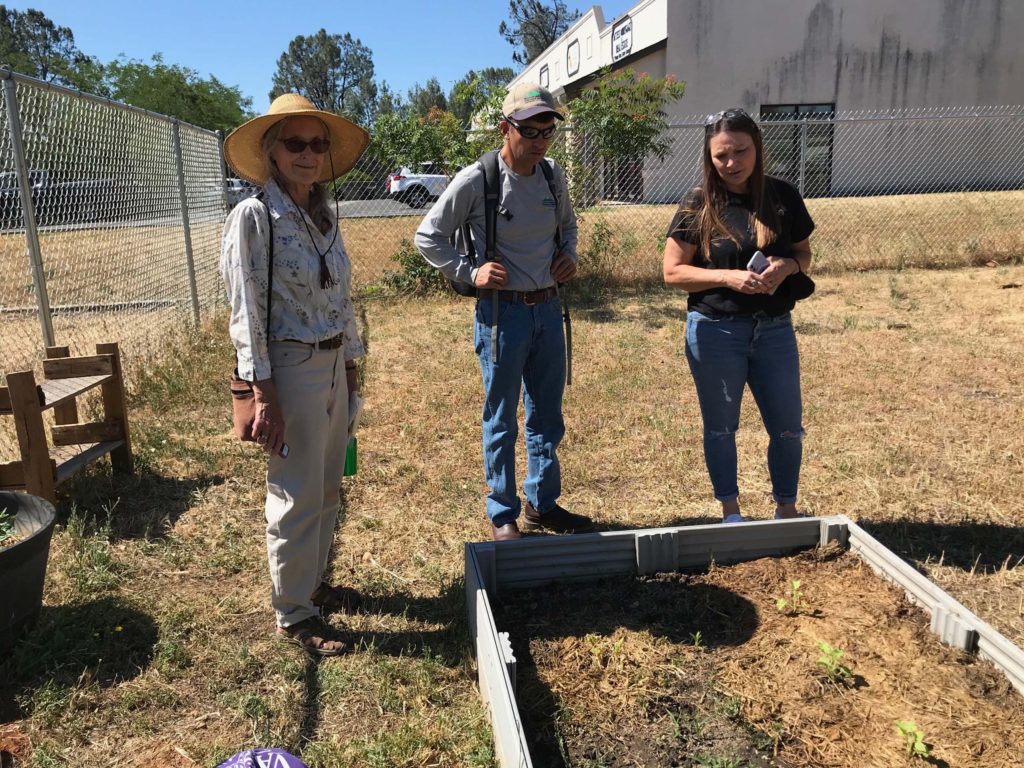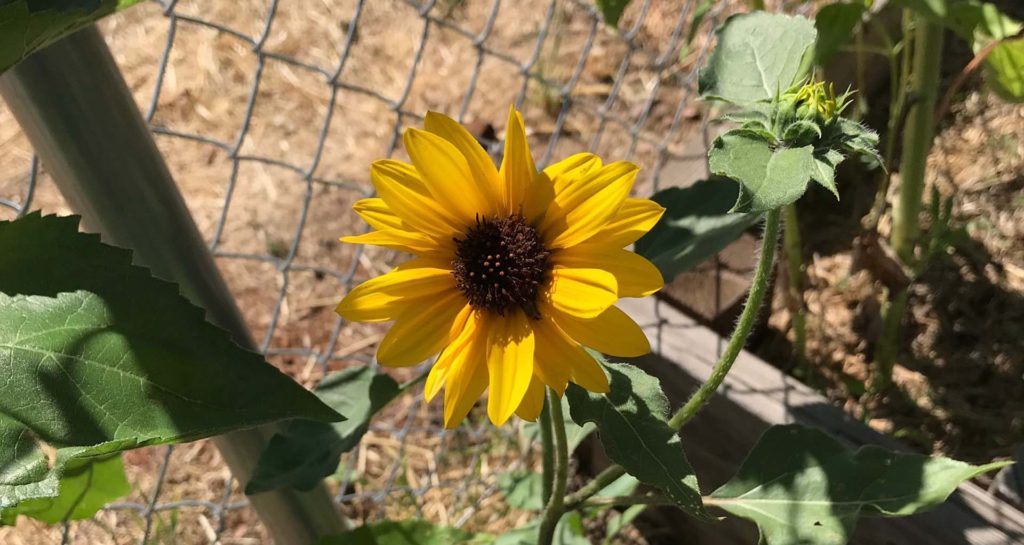
Dear Members,
Through Shasta Chapter’s Acorn Grant program, the students at California Heritage YouthBuild Academy* (CHYBA) have created a native plant garden. This is one of the functions of Shasta Chapter: to engage young people and communicate to them our love of native plants. We do this through several avenues: through the Acorn Grant program, which supports schools in educating students about native plants; through the public native plant garden at Carter House (Matson Mowder Howe Celebration Garden); through raising and selling garden-worthy natives; through our field trips (online this past year); and through just being ourselves.

A few days ago, a few of us met the students and teachers who are part of the CHYBA garden project. I had been wondering what to say to them, and decided that I would like to mention the four “W”s of gardening:
- Water: crucial for life; native gardens help conserve water as they can live on less while still doing important plant jobs such as improving the air, and providing habitat for…
- Wildlife: native plants are essential for wildlife. Insects feed on native plants, pollinate our food plants, are a major food source for birds, and ultimately for the whole wonderful web of life…
- Weeds: being a weed is not good or bad; it is just a lifestyle. Some invasive plants are weeds; some native plants are, also. In vegetable gardens, we usually remove weeds, but in native gardens we include some…
- Workers: gardens need workers! Every creature from pollinator bees to human beings who plant, provide water, and finally enjoy the food and flowers.
Probably the students knew these things already: that gardens of all kinds are part of our experience, where the plants may or may not need us, but we humans really need them.
~Susan Libonati-Barnes, President
*California Heritage YouthBuild Academy is a public charter school providing academic and career training. While working on an academic achievement diploma or GED, students participate in life skills and career development classes, including leadership and community service.

